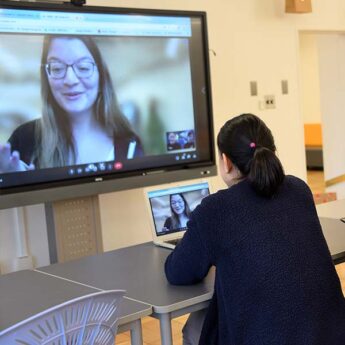Basically, your job is toast. There is a machine—or there will soon be a machine—that can do it faster, better and cheaper than you. Our skill set didn’t change much from the start of agriculture 12,000 years ago until the industrial revolution in the mid-18th century, but the past 150 years have been busy.
We have created a weapon that can destroy our race. Who thought we would be that stupid?
Fifty years ago we didn’t believe that machine translation of our complex language skills would get very far. Certainly it was expected that there would never be non-human intervention simultaneous translation. Also, we thought that machines wouldn’t be able to pivot or anticipate.
Then came IBM supercomputer Deep Blue, which became the first computer to defeat a reigning world chess champion, Garry Kasparov, under tournament conditions, in 1997.
Driving cars and trucks requires human skill because it involves such a delicate, detailed and difficult set of tasks. Isn’t it a ridiculous idea to imagine replacing those cantankerous ageing Japanese taxi drivers and punch-perm truckers with self-driving, self-navigating vehicles? Could Komatsu tractors use the Internet of Things to plough rice fields by themselves?
Apocalypse Now-style “death from the air” requires top gun pilots and gum-chewing gunners, doesn’t it? Killing each other can’t be delegated to drones, can it?
The list of the seemingly impossible continues: robot vacuum cleaners, programmable pets, hot droid receptionists, nimble stair climbing machines and adult men (many with passports) waving light sticks at holograph vocalists (Hatsune Miku). But all exist.
So what do you tell your child to consider for a career? Where will they still be needed and not ditched by a circuit board on wheels?
Well, actually, we are not so keen on handing over accountability to machines. For moral and ethical judgments, business decisions where “the buck stops here”, hiring and firing employment protocols, and creative brainstorming we will always require people to be involved.
Today, we don’t follow people we don’t respect, regardless of where they are positioned on an organisational chart. We may genuflect in their general direction, because they have a pompous title, but we don’t commit our brain and blood to them.
Machines have become so intelligent that they can lead each other—but they cannot lead us. We need human interaction, to hear stories, to share experiences, to be motivated, to aspire together against the rival firm, to set and follow our organisation’s vision and mission. We want empathy, collaboration, a sense of ownership and relationships.
In his book, Humans Are Underrated, Geoff Colvin references a recent Oxford Economics study that asked employers the skills they may need the most in their staff over the next five to 10 years.
The answers are not a reading from the left-brain hymnbook of profit and loss and balance sheet analyses, portfolio planning, strategic assumptions or run-rate calculations. The top priorities are all related to right-brain skills: relationship building, teamwork, co-creativity, brainstorming, cultural sensitivity and the ability to manage diverse employees.
So if you are a whiz on the macros in spreadsheet applications or doing numeric-based research—in fact, any machine-like work—start worrying.
US industrialist and founder of Ford Motor Company Henry Ford complained that every time he wanted a pair of human hands on his assembly line, he unfortunately got “a brain attached”. Today, we want that brain to feel as well as think. Being more like a machine than a machine is on a hiding to nothing.
We have to be good at being human—and good in our interactions with other humans. Colvin noted that, “being a great performer is becoming less about what you know and more about what you’re like”. Interestingly, between 1990 and 2009 empathy scores for US college students declined by nearly 15%. Based on this trend, we seem to be educating people in the wrong direction.
Here is a challenge for typical chief executives with a driver-type personality, who are assertive, and task- rather than people-oriented: how can you lead organisations in which technical skill is being outsourced to robots while the value of human interaction has become more critical to the success of the organisation? Do you ignore it or do you decide to change? And how do you change?
You’re the boss
It is quite interesting that our clients come from just about every industry you can imagine, but we have noticed some common requests for improving team performance.
The four most popular areas are leadership, communications, sales and presentations. Although we started in New York in 1912, in Japan we deliver 90% of our training in Japanese. Also, having launched in Tokyo 53 years ago, we have been able to master how to bring global best practices, together with the required degree of localisation.
You’re the boss. Are you fully satisfied with your current results? If not, and you would like to see higher skill and performance levels in your organisation (through training delivered in Japanese or English), drop us a brief note at info1@dale-carnegie.co.jp






